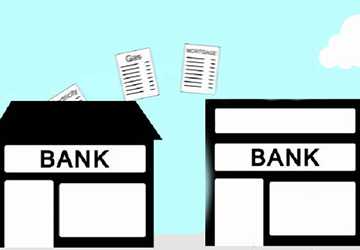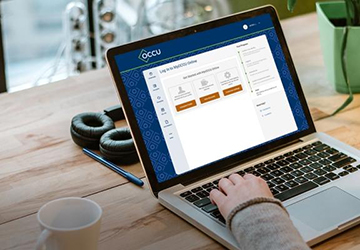Selecting the optimal bank account is pivotal for efficacious financial stewardship. Many individuals persist with the same bank for years, yet numerous compelling rationales exist to contemplate switching bank accounts. Whether you are pursuing augmented interest rates, diminished fees, or superior customer service, discerning the propitious moment to transition can significantly enhance your fiscal well-being. In this discourse, we shall elucidate various scenarios and stratagems to aid you in identifying the best time to change banks and furnish a comprehensive compendium on how to switch banks seamlessly.

A primary rationale for switching bank accounts is the imposition of exorbitant fees and suboptimal interest rates associated with your extant account. It may be sensible to seek a bank offering more advantageous terms if you are burdened with excessive monthly maintenance fees, ATM, or overdraft fees. Furthermore, if your account proffers a meagre interest rate on savings, you could be forfeiting potential pecuniary accruals.
Customer service constitutes a quintessential facet of any banking rapport. It may indicate the best time to change banks if you have needed more customer service, protracted wait times, or unhelpful personnel. Exemplary customer service can ease your financial management and efficaciously address any emerging issues.
Banks perpetually augment their account features to lure new clientele. Switching may be warranted if other banks offer superior features such as mobile banking applications, financial planning tools, or rewards programs. Remaining apprised of the latest banking products and services can facilitate finding an account that better aligns with your necessities.
One of the best times to change banks is at the terminus of the month. This timing prevents complications from overlapping direct deposits or automatic bill payments. By effectuating the switch at the culmination of your billing cycle, you can ensure a smoother transition and mitigate the risk of missing any payments.
Banks frequently proffer bonuses or promotions to entice new customers. If you receive an enticing offer, switching bank accounts could be auspicious. These promotions may encompass cash bonuses, elevated interest rates, or waived fees for a delineated duration. Capitalizing on these offers can yield immediate benefits and render the transition more appealing.
Major life events such as relocating to a new metropolis, entering matrimony, or commencing a new vocation are the best times to change banks. These events often necessitate a reevaluation of your financial difficulties and aspirations. Switching bank accounts during these transitions ensures your new bank is congruent with your evolving circumstances.
Here are some switching bank accounts tips on how to switch banks:
Before opting for tips on switching bank accounts, conducting meticulous research and comparing various banks is imperative to identify the one that best meets your necessities. Consider fees, interest rates, customer service, and account features. Compile a list of potential banks and distil your options based on your priorities.
Upon selecting a new bank, the subsequent step to switching banks is establishing a new account. This process typically entails completing an application, providing identification, and making an initial deposit. Ensure you have all requisite documents and information to facilitate a seamless process.
Following establishing your new account, transfer your funds from your old account. It is crucial to update your direct deposit information with your employer and any other sources of income. Additionally, update your automatic bill payments to ensure they are linked to your new account. This step is vital to avert any missed payments or disruptions in service.
Monitoring your old and new accounts for the initial months after switching bank accounts is prudent. This vigilance will enable you to ensure that all transactions are processed accurately and that there are no unforeseen issues. You can close your old account once you are confident everything functions smoothly.
- Strategize in Advance: Allocate ample time to research and compare banks before switching.
- Maintain Records: Retain detailed records of your old and new account information, including account numbers, passwords, and transaction histories.
- Communicate: Promptly notify your employer, creditors, and other relevant parties regarding your new account.
- Monitor Accounts: Regularly scrutinize your old and new accounts to ensure a seamless transition and promptly identify potential issues.

Leverage Promotions: Seek banks offering promotions or bonuses to new customers and take advantage of these offers when switching bank accounts.
Robust security measures are paramount in the contemporary era. If your bank lacks sophisticated anti-fraud mechanisms, consider switching bank accounts. Seek banks that offer real-time alerts, biometric authentication, and intricate cryptographic protocols.
Data breaches are increasing, and safeguarding your personal information is imperative. Banks with stringent data privacy safeguards, such as multi-faceted security frameworks and periodic security audits, provide augmented protection.
In this digital epoch, mobile banking's convenience is indispensable. Banks that offer holistic mobile banking capabilities, including mobile check deposits, real-time transaction monitoring, and intuitive user interfaces, can substantially enhance your banking experience.
Innovative online financial management tools can aid in superior fiscal management. Features such as budget tracking, financial goal articulation, and bespoke financial advice are invaluable.
Switching bank accounts may appear formidable, but the appropriate approach can yield substantial financial benefits. You can ensure a smooth and successful transition by discerning the best time to change banks and adhering to a structured process. Whether motivated by exorbitant fees, deficient customer service, or the pursuit of superior account features, making the switch can enhance your overall banking experience. Utilize the switching bank accounts tips and guidelines provided in this article to navigate the process with confidence and reap the benefits of your new bank account.